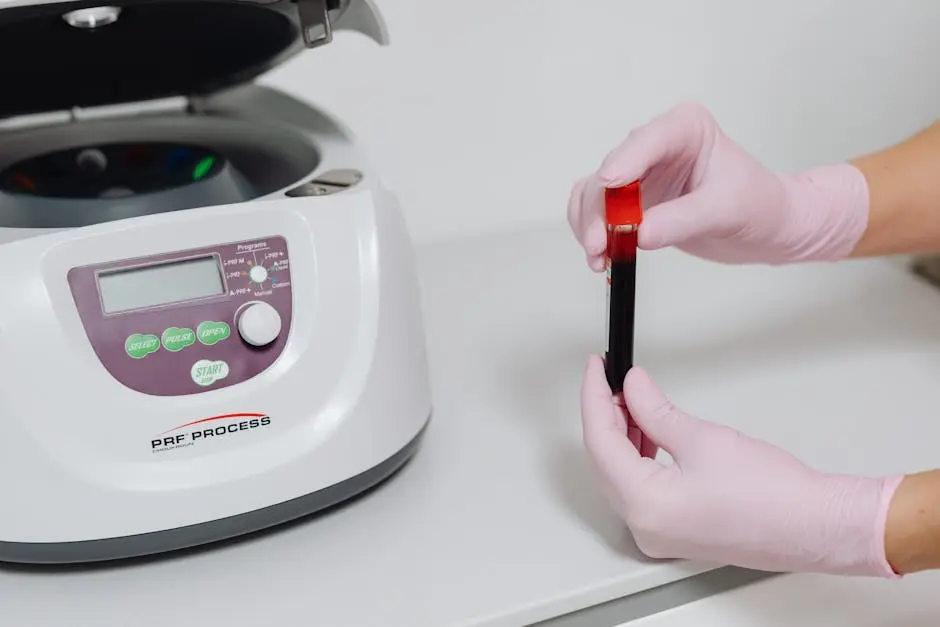In today’s fast-paced world, understanding your health has never been more crucial. Wellness diagnostics offer unique insights that can transform how you approach your well-being. This blog explores eight impactful ways these diagnostic tools can enhance your health journey, making it more personalized and informed.
1. Personalized Health Insights
In a world where one-size-fits-all solutions dominate the health landscape, wellness diagnostics provide a breath of fresh air. These tools allow for personalized health insights that are tailored specifically to you. Imagine walking into a doctor’s office armed with comprehensive data about your own body, including genetic markers, lifestyle habits, and metabolic responses. This data can help formulate a clear picture of your health, pinpointing not only what you need but also what to avoid. With such insights, healthcare shifts from merely reactive to truly proactive. You gain the ability to tailor your health management based on concrete evidence rather than guesswork.
Furthermore, utilizing wellness diagnostics facilitates a deeper understanding of your unique biological makeup. Each individual’s genetic structure can influence how they respond to various diets, exercises, or medications. By employing these advanced diagnostic techniques, you not only arm yourself with knowledge but also empower your health decisions. This enables you to identify non-obvious issues, such as nutrient deficiencies or predispositions to certain illnesses, long before they manifest. In essence, the integration of personalized health insights from diagnostics paves the way for better health outcomes.
2. Proactive Disease Prevention
Wellness diagnostics are instrumental in shifting the healthcare paradigm from reactive treatment to proactive disease prevention. The ability to detect potential health hazards before they escalate into serious conditions is a game changer. Through comprehensive screenings and biometric screenings, crucial markers like blood pressure, cholesterol levels, and glucose spikes are monitored. These insights provide a pathway to taking action long before symptoms even arise. For instance, if diagnostics reveal a trend toward elevated glucose levels, it’s an opportunity to adjust your diet and exercise before diabetes becomes a reality.
Moreover, wellness diagnostics not only focus on physical ailments but also highlight the importance of mental and emotional health. Conditions such as anxiety and depression can be influenced by biochemical imbalances, which can be identified through specialized tests. By recognizing these trends, you can implement lifestyle changes or seek appropriate support before things become overwhelming. The proactive approach fosters a state of awareness that promotes regular check-ups and healthy habits, ultimately resulting in improved longevity and quality of life.
3. Improved Lifestyle Choices
One of the most beneficial facets of wellness diagnostics is their ability to illuminate the path toward improved lifestyle choices. These comprehensive assessments reveal how your lifestyle interacts with your health, bringing to light areas for enhancement. For instance, through analysis of your sleep patterns, stress levels, and nutritional intake, you may discover that certain habits are adversely affecting your well-being. This new awareness can empower you to make better decisions and choose healthier alternatives, like opting for a balanced diet rich in nutrients rather than processed foods.
Additionally, wellness diagnostics streamline the decision-making process in adopting or maintaining a health regimen. Armed with clear data, you can create a structured approach to change. Whether it’s integrating more physical activity into your daily routine or employing relaxation techniques to combat stress, knowing what works for your body is incredibly motivating. This level of understanding can transform vague intentions into actionable strategies, making it easier to commit to meaningful changes that have a lasting impact.
Ultimately, by focusing on improved lifestyle choices informed by factual data, you not only enhance your physical health but also elevate your overall quality of life. The beauty of wellness diagnostics lies in their ability to bridge the gap between knowledge and action, helping you to take personal responsibility for your health journey.
4. Enhanced Mental Well-Being
Our mental health is just as important as physical health, and wellness diagnostics play a significant role in promoting enhanced mental well-being. Diagnostics can measure various biochemical markers that indicate how our emotional state may be affected by physical health imbalances. For instance, certain hormones like cortisol can be tracked to see if stress levels are elevated chronically, leading to anxiety or depression. By recognizing these patterns, you can address mental health proactively rather than reactively, gaining a clearer understanding of your psychological landscape.
Moreover, incorporating mental wellness checks into the suite of wellness diagnostics can foster a more holistic approach to health. By monitoring emotional resilience and cognitive function, you are equipped to make informed decisions about stress management strategies. Activities like mindfulness exercises, counseling, or simply prioritizing rest can be tailored based on data collected from wellness diagnostics. This individualized approach not only uplifts mental health but creates an overall sense of balance, improving resiliency against life’s challenges.
5. Strengthened Immune System
Wellness diagnostics can provide vital insights into your immune system health, paving the way for a stronger defense against illness. With access to detailed reports on vitamin levels, inflammatory markers, and overall health status, you can identify potential weaknesses in your immune response. For example, low vitamin D levels can significantly impact your body’s ability to fend off infections. This identification allows for targeted supplementation and lifestyle changes that can bolster immunity and promote better overall health.
Additionally, understanding the individual components of your immune health can aid in implementing preventative measures throughout the year. Through diagnostics, you can identify which areas require more attention, whether it be increasing antioxidant-rich foods in your diet, engaging in regular exercise, or managing stress effectively—all of which contribute to a robust immune response. This vigilant approach not only minimizes the risk of seasonal illnesses but cultivates a longer-term strategy towards sustained health.
6. Customized Nutrition Plans
Nutrition is undeniably a cornerstone of health, and wellness diagnostics pave the way for customized nutrition plans that cater specifically to your body’s needs. Every individual has unique nutritional requirements based on genetics, lifestyle, and physiological factors. Through assessments that evaluate your metabolic efficiency and analyze how your body processes different nutrients, you can create a holistic nutrition plan that maximizes health benefits while minimizing adverse effects. These insights allow you to focus on specific foods that align with your body’s unique profile, fostering better digestion and nutrient absorption.
Moreover, with an enhanced understanding of your body’s responses to various food types, meal planning can become a more intuitive and enjoyable experience. Instead of navigating through fad diets or generic meal plans, wellness diagnostics enable you to select nutrient-dense foods that resonate with you personally. This personalization fosters satisfaction and sustainability in nutrition, making it easier to embrace healthier eating habits in the long run.
7. Guided Fitness Programs
Getting active becomes much more effective when guided by data from wellness diagnostics, leading to more tailored fitness programs. By understanding your fitness level, recovery times, and potential areas for improvement, you can create workout routines that amplify results while minimizing the risk of injury. For instance, realizing that you may need to prioritize strength training or flexibility work can optimize your workouts significantly.
Additionally, by tracking progress through diagnostics, you can see tangible results from your efforts, whether that’s improved stamina, increased muscle mass, or weight loss. These results not only provide motivation but also help you stay accountable to your fitness goals. You can adjust your routine based on the insights gained, ensuring it remains effective and engaging over time.
8. Informed Medical Decisions
Finally, wellness diagnostics empower you to make informed medical decisions that reflect your personal health data rather than general recommendations. When you have access to your detailed health profile, you can engage more effectively in conversations with healthcare providers. By being equipped with information on your enzyme levels, hormonal balance, and metabolic rates, you can advocate for yourself and explore treatment options that align with your health objectives. This sense of agency is vital in today’s medical landscape, ensuring that you are not just a passive recipient of care.
Moreover, informed decisions extend beyond choosing treatments; they encompass the entire spectrum of your health journey. Knowing your body’s specific needs can guide you in choosing preventive measures, lifestyle modifications, and even supplement use. Instead of navigating health concerns based solely on symptoms, you take charge of your journey with data-driven evidence and strategies that resonate genuinely with your life.

